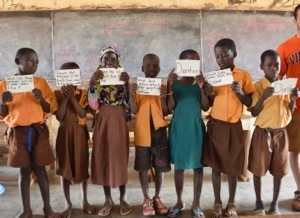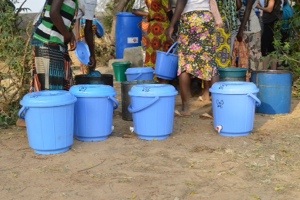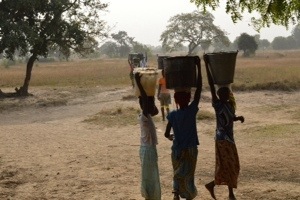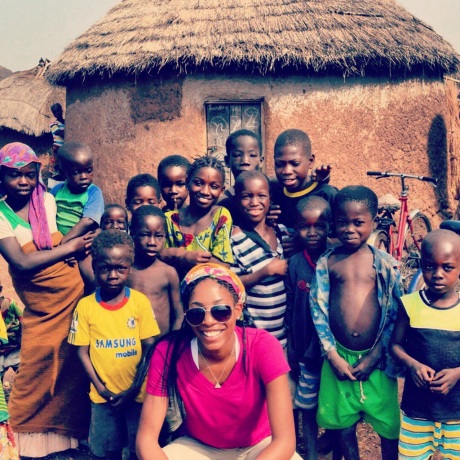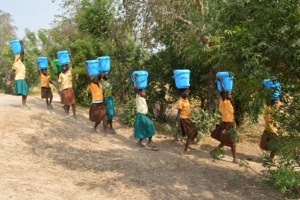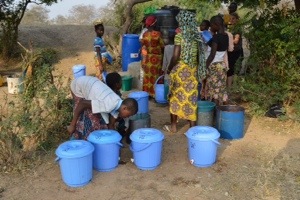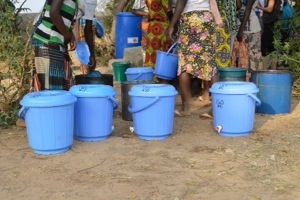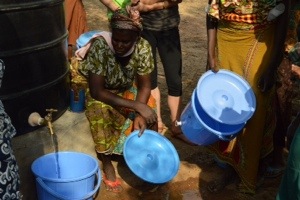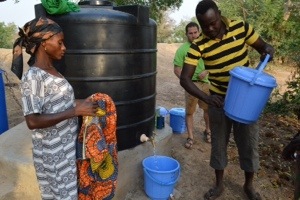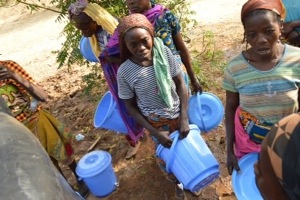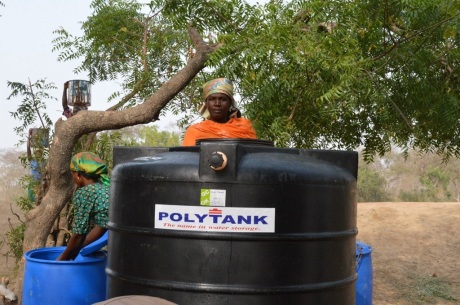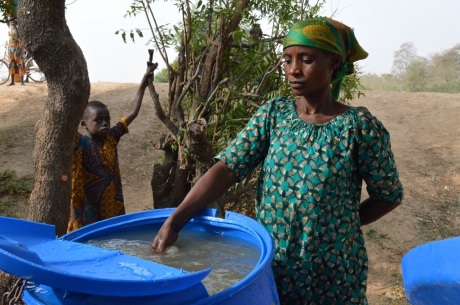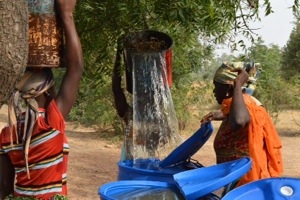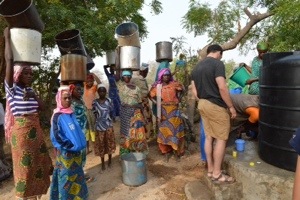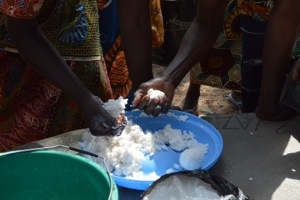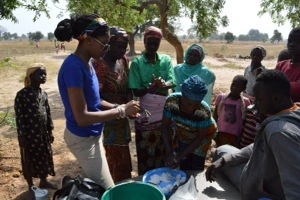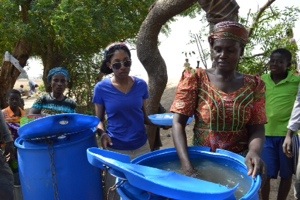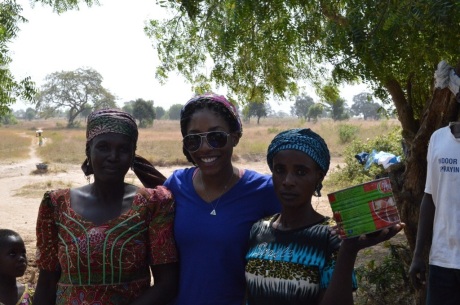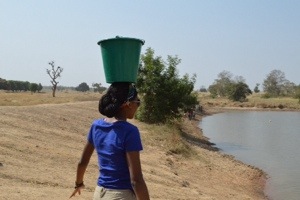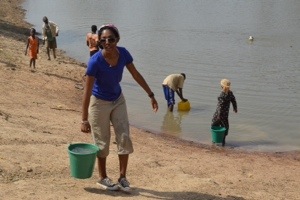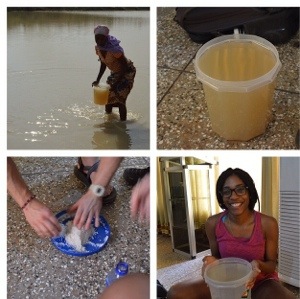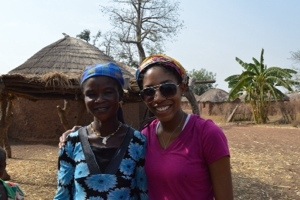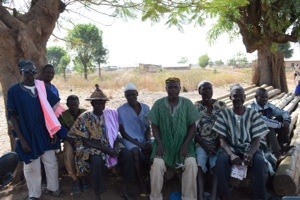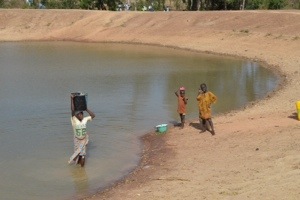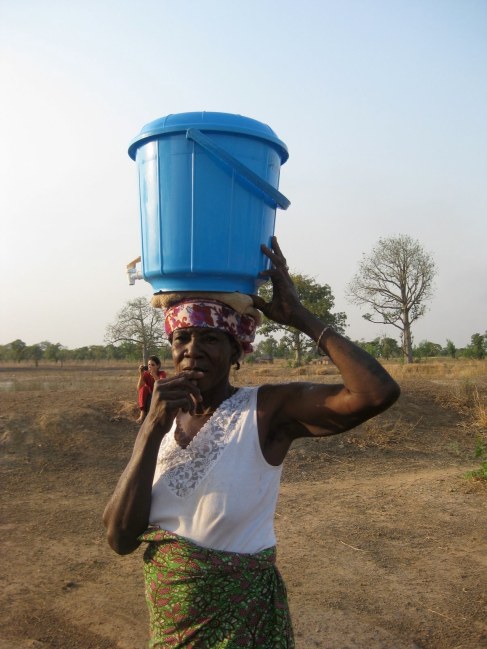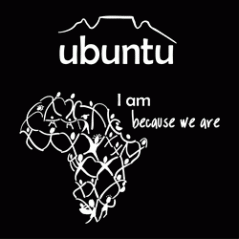It’s my last day in Ghana, and as I sit and reflect on my time spent in the villages with Community Water Solutions I can honestly say that this experience was life changing. I was able to immerse myself in a Ghanian village, meet with real life African chiefs and elders, and experience intimate moments with the women and children. As a public health policy student I was not well-versed in the global water crisis before coming to Ghana. Seeing first-hand the turbidity and feces-contaminated water was both heart-breaking and frustrating, but after 3 grueling weeks I am proud to say that over 100 households now have access to clean water in the village of Dundo!
Community Water Solutions has a great concept that is improving access to clean water in rural areas that the Ghanian government has had issues with providing with piped water sources. In addition to clean water, women are able to achieve some economic freedom from their husbands through profits from the water center. The women take ownership of the water center which I think is a great first step to inducing behavior change. It’s hard to believe, but while dirty water has claimed the lives of millions, there are still millions of people who have survived with minor symptoms. This was something I had to keep in mind when educating villagers as it is easy to think (with my privileged American brain) that EVERYONE should want and value clean water. To my surprise, it isn’t always a priority when you have kids to watch over, a farm to tend, and meals to prepare. There are more pressing and immediate issues that I think are sometimes overlooked when humanitarians/volunteers come into a community to do service work. With CWS, we spend hours educating households before the water center opens up and after all of the time spent educating, I thought it would translate into immediate behavior change and only clean water being consumed by the villagers. During our last week, we monitored the households who received safe storage containers and took samples of their drinking water. To our surprise, quite a few households’ water samples tested positive for bacteria contamination. This meant that contamination was occurring in the household as our polytank samples always came back clean. Contamination was most likely coming from not washing the containers and dipping objects into the container rather than using the tap.
During this time I thought back on the process that we had gone through and thought about how excited everyone seemed to be about clean water and getting the safe storage containers, and then it hit me. We are foreigners coming into a culture that we know little about and told them that they were going to get something for free! Of course they were going to be excited, and for the most part everyone cooperated but the public health in me wanted to get to the bottom of why everyone might not have thought clean water was a priority for them.
My schooling came in handy here as we have learned over and over again how hard it is to change behaviors with things such as condom use, cancer screenings, eating healthy, etc. people know what they are supposed to do but when dealing with individuals with an array of other issues affecting them everyday it became apparent to me how important it is to monitor and reiterate your message in non traditional ways. CWS takes the approach of using the fellows to come back the week after implementation to go back and re-educate, but I think the man power could be better used with educating the women and leaders of the community to be warriors for the cause. Simply restating what we have already told them doesn’t seem to be as effective as having someone from the same community as them reiterate these points. I think that our time would have also been better spent monitoring in communities that past fellows have already implemented in. When fellows are not in Tamale, there is a full time staff of about 4-5 individuals who visit only about 6 households in each of the villages. While they do the best they can with their manpower, with 20-40 fellows at your disposal, I feel that we could reach many more villagers.
My other issue with the fellowship was the program fee of $3000 that we were required to raise. My team kept track of our expenses and we only spent 950 Ghana Cedi. This is equivalent to about $500. As a team we raised $9000 (18,000 Ghana Cedi). I’m sure some of it went to our lodging, food, transportation, and translators, but Ghana is not an expensive country. It is my assumption that a large chunk of our funds went back into the organization to help support the full time staff’s salary, but I think that this should have been explained to us or a proper breakdown of where all of our funds went. While I don’t think that CWS is corrupt or using our money improperly, as their staff must survive and need a salary, but I do think that they are falling into the trap that cause many non profits to fail. They aren’t transparent with how they spend their money and donors start to feel apprehensive about contributing, causing an organization to go under. I think that being honest and upfront is a much better route to take, and is something I will take into consideration when starting my own organization.
Lastly, I didn’t like the idea of the fellows going into the communities and painting the schools. While a good gesture, no school in America would allow an organization to brandish the building with their logos the way that CWS does. My first thought was, “Do we only think this is acceptable because we are in Africa?” Luckily everyone else in my group agreed and we decided against painting, as none of us are painters or artists.
Overall, I think CWS has a great concept, and I support their cause but I think they have some quirks to workout to keep their organization sustainable. I’m not concerned about the villages maintaining their water centers as the ladies we encountered were all great business women and took it seriously, but as someone who is looking to one day start my own non profit, I learned a lot and would do it again in a heartbeat. I am so thankful for all of the people who donated to my cause and I wish that you could have experienced the words of kindness showered down on me while working, because without you this would not be possible.
Love & Light.
